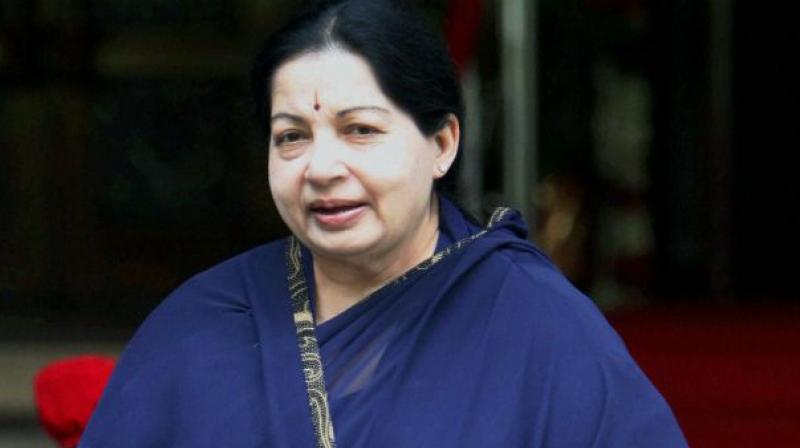SC rejects Karnataka's plea to reconsider verdict against Jayalalithaa in DA case
SC dismissed as no merits' the curative petition which sought direction to recover Rs 100 Cr fine imposed on Jayalalithaa.

New Delhi: The Supreme Court has refused to entertain a curative petition filed by Karnataka seeking reconsideration of February 14, 2017, judgment holding that the appeal in the Rs 66 crore disproportionate assets case against former Tamil Nadu chief minister Jayalalithaa has abated after her death on December 5, 2016.
A three-judge bench of Chief Justice Dipak Misra and Justices Ranjan Gogoi and Madan B Lokur dismissed as ‘no merits’ the curative petition which sought a direction to recover the Rs 100 crore fine imposed on Jayalalithaa by the trial court which was upheld by the apex court.
The curative petition was filed after the state’s plea for review was turned down.
The bench in a brief order passed in the CJI chamber said, “The application for personal hearing is rejected. We have gone through the curative petitions and the relevant documents. In our opinion, no case is made out for reconsideration.”
In view of the dismissal of both the review and curative petitions, Jayalalithaa is not bound to pay the Rs 100 crore fine to the Karnataka government.
In its curative petition, Karnataka described the judgment as an “error on the face of the record” which merits a re-look. It said, “If a party dies after the conclusion of arguments and judgment is reserved, there is no question of abatement of appeal and that the judgment subsequently pronounced will have the same force and effect as if the same was pronounced before the death took place.”
On February 14, 2017, the apex court holding Sasikala, Sudhakaran and Ilavarasi guilty of abetment in the DA case convicted them to undergo four-year imprisonment and they are now in jail in Bengaluru. As far as Jayalalithaa was concerned, the bench said the appeal has come to an end.
Assailing this finding Karnataka said, “There are no provisions either in the Constitution or in the Supreme Court Rules, 2013 for such abatement of appeal. On the other hand, the Supreme Court Rules, 2013 provide that both in case of civil appeals, as well as election petitions, there will be no abatement if the death takes place after the conclusion of hearing.”
Karnataka argued that even though the question of Jayalalithaa undergoing further imprisonment does not arise, sentence to pay fine is legally sustainable which has to be recovered from the estate. This is particularly so where the offence alleged is of illegally acquiring disproportionate assets. Therefore, the finding that the appeal has abated is not correct.
It said “a criminal appeal involving offences under the Prevention of Corruption Act stand on a slightly different footing where the allegation is of acquisition of disproportionate assets by a public servant.
In the circumstances, though the death of Jayalalithaa renders a sentence of imprisonment infructuous, the question whether any fine is liable to be imposed as also confiscation of illegally acquired property will survive for consideration.” Karnataka urged the Supreme Court to modify its February 14, 2017, judgment and restore the trial court verdict in its entirety against Jayalalithaa.

